In order to render the YouTube video functional cookies are required.
Update your cookie preferences
Salt and health
Your body already knows. And you?
 1. Salt and health
1. Salt and health1. Salt and health
The European Salt Producers' Association (EUsalt) is an association of salt producers from 18 European countries and beyond, based in Brussels, Belgium. Learn more about the various uses of salt and its importance for the human body in the very interesting and informative video by EUsalt.
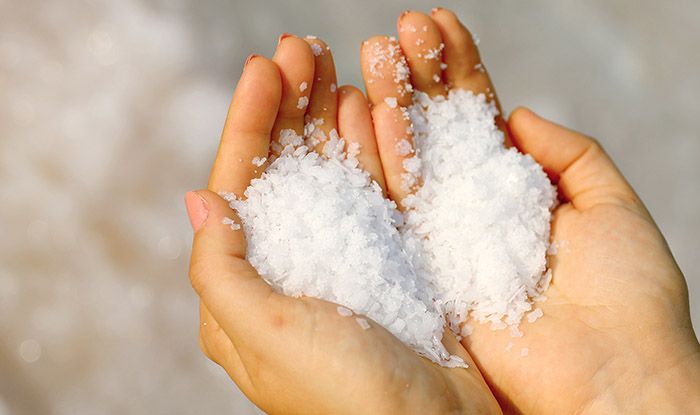 2. Why does our body need salt?
2. Why does our body need salt?2. Why does our body need salt?
The cells of the human body and body fluid are largely composed of water and salt. Sodium chloride is a vital mineral for our body. Salt regulates blood pressure, the fluid balance of the cells, and is the foundation of a functioning metabolism. The salt balance and water balance of the body are closely related. The ratio of the two substances water and salt is coordinated and is controlled by the sense of thirst and elimination through the kidneys. This ensures that the balance remains constant independently of the salt intake. If the ratio is not balanced, body functions could be impaired.
Salt also regulates the tension of tissues and is the foundation for muscle excitability and for stimulus conduction in the nerve pathways. Salt is an important component of our blood, plays an essential role in the formation of bones, and is a component of the digestive juices. There is an especially high chloride content in the cells of the gastric mucosa, in which hydrochloric acid is formed to be used for digestion.
Depending on its weight and size, an adult body contains about 150 to 300 g of salt, while that of a newborn contains approx. 14 g. 9 g of table salt is dissolved in a liter of human blood, so the salt content of blood and other body fluids is 0.9%.
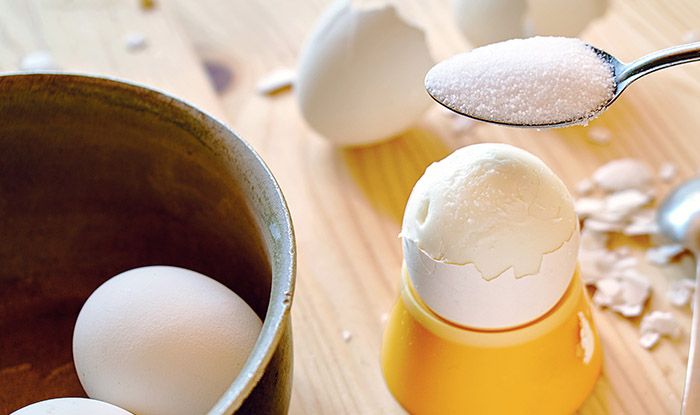 3. How much salt does a person need?
3. How much salt does a person need?3. How much salt does a person need?
The Deutsche Gesellschaft für Ernährung e. V. (German Association for Nutrition) recommends an intake of six grams a day. That is about one teaspoon of salt. This amount ensures regulated functioning of the human organism. Part of this is already ingested with other foods, so it is enough to add two to three grams of salt every day. With a balanced diet, about three fourths are ingested with food that already contains salt – sausage, bread, and cheese for example. One fourth is covered by table salt used for cooking and seasoning. We also take in salt when we drink. A healthy body eliminates any excess salt.
 4. Which groups of people should pay special attention to their salt balance?
4. Which groups of people should pay special attention to their salt balance?4. Which groups of people should pay special attention to their salt balance?
A balanced diet is especially important during pregnancy. This includes an adequate supply of minerals, including salt.
In older people, the water and nutrient balance can be severely disrupted by lack of salt. An adequate salt supply is important for physical and mental fitness.
Professional athletes should also pay attention to their salt balance. The heavy exchange of fluids (sweating and drinking) can lower the salt content of the blood, which can result in seizures. This is why sports physicians recommend isotonic drinks, i.e. drinks with many salts and minerals.
 5. Why do we need iodine and how much?
5. Why do we need iodine and how much?5. Why do we need iodine and how much?
Iodine is a vital trace element that the human body cannot produce itself. It must be ingested with food.
Iodine is an essential component in the production of the thyroid hormones triiodothyronine (T3) and tetraiodthyronine (T4), or thyroxine. These hormones contribute to controlling the metabolism of proteins, carbohydrates, and fats and regulating body temperature and heart frequency. They are thus necessary, among other things, for normal growth and the development of the brain.
If we do not supply our body with enough iodine, the thyroid tries to compensate for this deficiency with an enlargement of the thyroid gland. If this enlargement exceeds a certain size, it is called a “goiter,” which can have serious health repercussions. Some symptoms can indicate iodine deficiency much earlier: lack of concentration, listlessness, constant fatigue, depressive moods as well as dry, flaky skin, digestive disorders, and a weak immune system.
Major parts of the population still are not adequately supplied with iodine. Especially for children, young people, and women during pregnancy and the breastfeeding period, an adequate supply of iodine must be ensured. Even those who have a fresh and varied diet and eat saltwater fish such as shellfish or cod several times a week are only covering a maximum of 2/3 of the recommended intake of iodine. With iodized table salt, the supply of iodine is clearly improved.
According to the Deutsche Gesellschaft für Ernährung e. V. (German Association for Nutrition, DGE), the daily requirement of iodine is 180–200 µg (= 0.18–0.2 mg). Various requirements are specified for different ages:
Children (10–13 years): 180 µg of iodine/day
Adolescents and adults (13–51 years): 200 µg of iodine/day
Adults (51 and older): 180 µg of iodine/day
Pregnant women: 230 µg of iodine/day
Breastfeeding women: 260 µg of iodine/day5 g of iodine a day is an adequate supplement for a healthy diet, since this amount can cover the daily iodine deficiency.
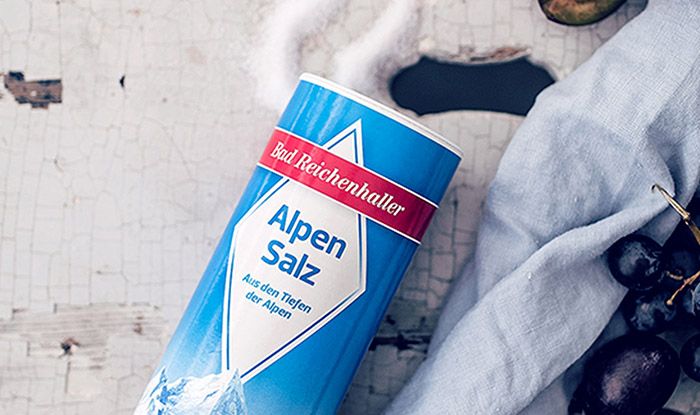 6. Does Bad Reichenhaller also offer products without iodine?
6. Does Bad Reichenhaller also offer products without iodine?6. Does Bad Reichenhaller also offer products without iodine?
Yes. Bad Reichenhaller AlpenSalz in the blue 500 g box or 500 g shaker contains no added iodine. The same applies for the mills and Alpensaline products.
 7. Why do we need fluoride and how much?
7. Why do we need fluoride and how much?7. Why do we need fluoride and how much?
Fluoride is a trace element that the body cannot produce itself. Like iodine, it must be ingested with food. Fluoride protects us against acids that are formed by caries bacteria, which in turn attack the teeth. It also contributes to the maintenance of tooth mineralization.
In Germany, drinking water contains less than 0.25 mg of fluoride per liter in 90% of regions. That is much too little to cover the daily requirement. It is just as difficult to ingest a sufficient quantity with food, since only a few foods, such as saltwater fish, black tea, nuts, seafood, and soy products are rich in fluoride.
The consistent use of table salt fortified with fluoride can help prevent the formation of new caries.
According to the Deutsche Gesellschaft für Ernährung e. V. (German Association for Nutrition, DGE), the average fluoride requirement of an adult is 3.1 to 3.8 mg a day. Pregnant woman or women who are breastfeeding, infants, children, and people with an increased risk of caries should pay special attention to their intake of fluoride.
The daily fluoride requirement mainly depends on age and sex. Here are a few examples*:
Infants (0–4 months): 0.25 mg of fluoride/day
Infants (4–12 months): 0.5 mg of fluoride/day
Small children: 0.7–1.1 mg of fluoride/day
Schoolchildren: 1.1–2 mg of fluoride/day
Adolescents (male): 3.2 mg of fluoride/day
Adolescents (female): 2.9 mg of fluoride/day
Adult males: 3.8 mg of fluoride/day
Adult females: 3.1 mg of fluoride/day
Pregnant/breastfeeding: 3.1 mg of fluoride/day
*Source: Deutsche Gesellschaft für Ernährung e. V. (DGE)
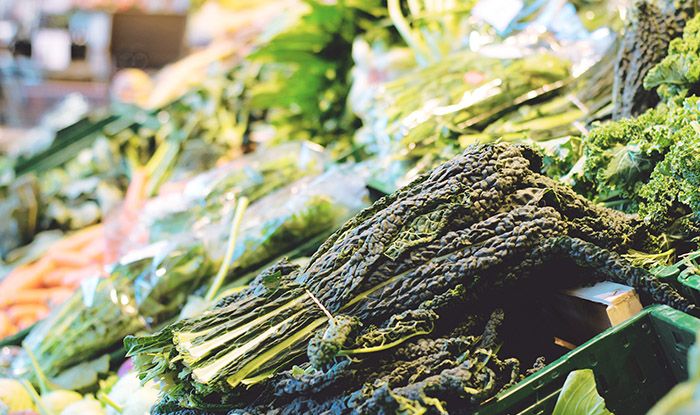 8. Why do we need folic acid and how much?
8. Why do we need folic acid and how much?8. Why do we need folic acid and how much?
Folic acid is a water-soluble B-vitamin and is referred to as folate in its natural form in foods. Folic acid has many important functions in the body. Above all, it is responsible for cell division. This includes, for example, the formation of red and white blood cells and the formation of mucous membranes.
Folic acid exists as folate mostly in salads, vegetables, and legumes. Beans, lamb’s lettuce, spinach, peas, kale, lentils, and soybeans have a high concentration of folate. However, liver also contains a large amount of folic acid.* Folate is very sensitive to storage conditions, light, and heat. For this reason, supplying it with food alone is generally not sufficient. On average, about one third of the B-vitamin is lost due to storage and food preparation.
As opposed to naturally occurring folate, the folic acid used in Bad Reichenhaller AlpenJodSalz is storage-, light-, and heat-stable (when cooking or baking), so it can make an important contribution to supplying our body with folic acid.
The recommended daily amount of folic acid – according to the Deutsche Gesellschaft für Ernährung e. V. (German Association for Nutrition, DGE) – is 150 µg of folic acid or 300 µg of a folate equivalent for all age groups from 10 years (1 µg of folate equivalent = 1 µg dietary folate = 0.5 µg of synthetic folic acid). Recent studies have revealed that the folic acid supply is under the reference value in large parts of the population.
With a sustained folic acid shortage, early deficiency symptoms can emerge, including fatigue, lack of appetite, and irritability.
In the case of pregnant women, folic acid contributes to the healthy development of mother and child. According to the DGE, pregnant women need 600 µg of folate equivalent per day. For this reason, women who wish to conceive are recommended to ensure a sufficient intake of folic acid before and after conception.
* Source: (Souci/Fachmann/Kraut, Food composition and nutrition tables, 6th revised and enlarged edition, Stuttgart 2000)
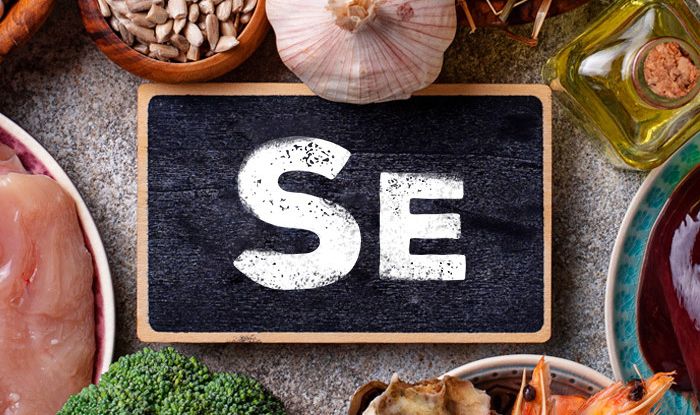 9. Why do we need selenium and how much of it do we need?
9. Why do we need selenium and how much of it do we need?9. Why do we need selenium and how much of it do we need?
Although considerably better known, iodine isn't the only vital trace element that performs several tasks within the body. Selenium is important, too. Selenium contributes to normal immune system function, normal thyroid function and to protecting cells from oxidative stress. Selenium also contributes to maintaining normal hair and nails, and to the normal production of sperm.
As the body is unable to produce its own selenium, we need to get it from food. This is an easy feat for people who regularly consume meat, fish, milk and dairy products. However, those who eat a predominantly plant-based diet need to ensure that they consume sufficient amounts of selenium. This is because the soils in Germany are poor in selenium, and, as such, the plants growing on them contain negligible amounts of the trace element. Animal feed, on the other hand, may be fortified with selenium in the EU, and this has an impact on animal products.
The German Nutrition Society (Deutsche Gesellschaft für Ernährung or DGE) estimates that adult women need to consume 60 micrograms of selenium daily and men need 70 micrograms. However, according to an expert panel, the amount ingested through food is only around 30 to 50 micrograms per day (as of December 2021).
Those who follow a flexitarian, vegetarian or vegan diet can contribute to their basic supplies of iodine and selenium by using AlpenJodSalz + Selen when cooking and seasoning food. Delicious, simple and reliable.